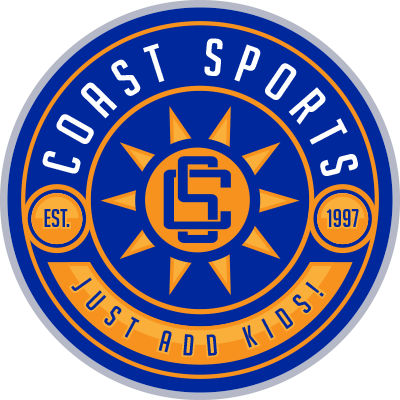CIT JOB DESCRIPTION and CODE OF CONDUCT
From camp’s earliest days, we have encouraged our older campers to help with our programming and coaching. Some of our most memorable coaches began as 12-year-old assistants (names furnished upon request). It has become one of the hallmarks of Summer of Fun that from the age of 6, kids want to be coaches. Every year we get calls from parents asking if their 9- and 10-year-olds are “old enough.” Uh…not quite.
Our 12-15-year-olds are the foundation of everything we do. They infuse camp with a spirit that filters down to the younger campers. They are the big brothers and sisters the little ones want to emulate. And they are the future of our program.
But what exactly do our CITs/Assistant Coaches do? What are their responsibilities? Are they obligated to help? What if they just want to hang out with their friends?
Above all we want our 12–15-year-olds to have a fabulous time, while interacting with the campers and experiencing quality time with their peers. So in an effort to give everyone a clear understanding of the role of the CIT/Assistant Coach, we have created the following job description and code of conduct.
A CIT/Assistant Coach:
Recognizes that his/her behavior affects those around him/her. That he/she will be a model for the younger campers and therefore must strive to maintain the highest standard at all times.
Needs to be attentive and aware of his/her surroundings at all times. The safety of our campers depends on this.
Is there to further the values of camp – fun, respect, community and safety – whether interacting with the campers and staff or just hanging with friends.
May prioritize being with friends over assisting with activities. That’s okay. At the same time, those who relish helping coaches and working with campers will be given that opportunity.
Must arrive by 9:00 and stay until 3:30, unless given permission to come later or leave earlier by Steve or Alexa.
Presents a positive, family-friendly image, coming to camp dressed appropriately. A clean camp t-shirt, proper-length shorts, sneakers or athletic shoes. No sandals, flip flops, crocs, etc.
Should try to learn the names of all the campers. This is not as daunting as it sounds. But it is critical to our mission of creating a supportive, family atmosphere at camp.
Should approach a camper sitting by him/herself and strike up a conversation. Maybe it’s a new camper, or one who doesn’t know anyone, or someone who’s unsure of what to participate in. Your outreach could make a big difference.
Leaves his/her cell phone in their bag during camp hours. A cell phone that is spotted will be held in the office. Messages may be checked at lunchtime or during breaks. Important phone calls can be made in the office.
Shares our commitment to keeping the campus clean, which means that if there is litter, cups, bowls, wrappers, or anything that is better off in a trash can than on the ground, he/she should pick it up and dispose of it.
Should understand that his/her work ethic is not just important for future development, but is also a way to show senior coaches and Steve your potential as a future coach
Specific Jobs
Alexa and Kaiis will assign specific tasks during the day. Here is the list of responsibilities:
Morning camp set-up and afternoon camp take down
Assist senior coaches with activities, including game management, and equipment set-up and take down
Captain teams and stations during afternoon activities
Meet, greet and give tours to new campers
Assist new campers in acclimating to camp
Mentor younger campers
Volunteer for contests, which could mean singing, dancing, acting in skits or otherwise enhancing the fun quotient of the activity
Keep water stations clean and fully supplied
Help with the orderly storage of lunch bags and backpacks
Assist with otter pop serving
Tidy up the camp, including periodic equipment retrieval and trash collection
Anything else we forgot to include in this document
